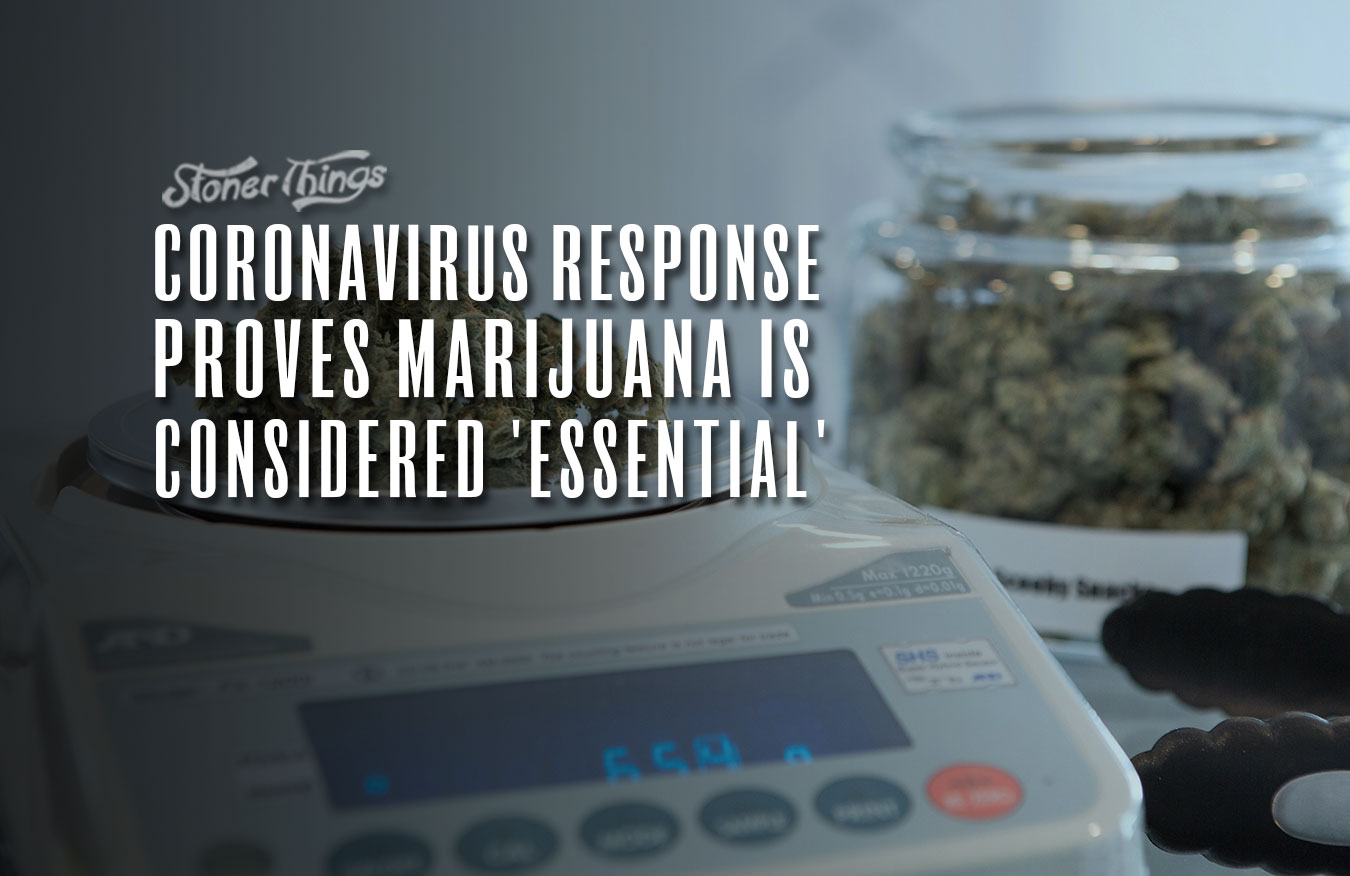It’s a fact that the coronavirus pandemic is changing how we live and work. Almost everyone has been dealing with some kind of impact, whether it’s extra steps at essential jobs to ensure sanitation, or working from home and limiting trips out. But something you may have already known is that marijuana is an essential service — just look at ‘how legal weed is being treated during the coronavirus.
What isn’t deemed essential: Bars. That’s probably because booze, while it may seem to heal one temporarily, is not actually medicinal. Only by tradition is alcohol still a legal substance you can take as an inebriant while marijuana is treated as having “no medical purpose whatsoever” at the federal level. Luckily, over half the states have passed some form of medical marijuana laws, allowing those who need pot for a range of medical reasons to get it legally. Or, as pseudo-legally as the Federal Department of Justice will allow, anyway.
California has so far had decent luck flattening its infection rate by using social distancing measures and closing as many in-person events and retail establishments as possible. However, the state’s cannabis dispensaries can remain open if they have a medical license and if they practice social distancing, now common in grocery stores and other essential operations.
While Colorado only recently approved home delivery for weed, the state is using an emergency rule to allow curbside pickup and phone orders. Several other state regulators have followed suit, especially keen on flattening their own infection curves. Oregon, Ohio, Michigan, Maryland, New Jersey and Illinois have allowed curbside pickup, with New Hampshire adding telehealth options for doctors who might need to prescribe cannabis when in-person visits are highly discouraged.
This has caused some disruption in the supply chain, but that was mostly due to officials lagging in response and the slow rollout of guidelines for the virus as it has swept across the country. It put a spotlight on a number of things we took for granted, and going to the dispensary whenever we needed to refill is one of those things. Now, shoppers are being more mindful about what they need, given they might be in line for a while or having to pick a backup strain if their preferences are sold out.
The days of recovery are possibly far ahead of us, too, which means dispensaries may be looking at changing how they operate — but will obviously have to work with state regulators. Perhaps this will encourage more delivery options from states that had resisted. Or, it might tie into further pushes into telehealth, so new patients can get medical pot when they need it and skip the doctor’s office visit that could put them at risk for infection.
While some argue that if you can buy weed you should also be able to buy books, we’re in largely uncharted territory here. The days of polio, measles and other highly infectious diseases are largely behind us, and there’s not many people who remember friends and family wearing masks. But for now, at least many medical marijuana patients are able to get their medicine thanks to open-minded state regulators and your friendly neighborhood dispensary.















I do not understand how come Washington state gets left out of many of the reports. Washington is deemed an essential business here and our LCB proceeded immediately to get us guidelines to operate by including the curb side pick up as well. There were 2 occasions where my LCB officer gave us our notices of changes just prior to it being announced by our Governor. I feel that Washington has shown great leadership on the COVID changes. I believe it should also be noted about the states using the tax dollars to help with what is needed to help the states through this pandemic.